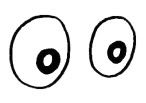Day 9: Tuesday 9 June
Replying To Comments
Studying the comments, then putting the suggestions into annotations and listening to myself again and comparing it with the correction in order to put the annotation in - is, I think, the main thing which will help me learn in this exercise.
So I've decided not to reply to the comments fully in Japanese. I think if I did that it would take the focus away from the main point. I hope people don't mind me writing in English - and I hope they understand it's not laziness ... I just want to keep the focus of this experiment.
My Mistakes From English
It's interesting that a lot of my mistakes come from English. Well, like you'd expect. But I find those mistakes very interesting. It's like ahhh, we say it like this in English, but you don't say it like that in Japanese ... (picture lightbulb above head).
Mistakes That I Know Vs Don't Know
Some of the mistakes I'm making I know that they're mistakes and for some reason they randomly slip out. Other mistakes I have no idea that that is the wrong way / or unnatural way to say it.
Failure As A Tool
Just found this blog post through a Tweet ... explains the theory behind my experiment better than I can.
http://victorymanual.com/youre-wrong-deal-with-it/
vocab/expressions
工事 こうじ (vlog#1)
I didn't know 工事 was also for painting etc. I thought it was just for construction.
高圧 こうあつ high pressure (vlog#1)
Someone left a comment saying that 強い水 wasn't natural.
という訳で instead of とにかく (vlog#2)
* I think one of the hardest things in language learning is knowing when to use words like transition words. As I said in a comment: I think I say とにかく because I say anyway a lot in English when I want to return to the main thing I'm talking about. I'm going to try using という訳で.
も あって (vlog#2)
bizdna left this comment:
編集した人のおかげで・・ 間違っていませんが狭い表現で意味が強くなります
編集した人のおかげ も あって・・ より広い表現になります
This made me think of when you're speaking another language sometimes you sound stupid because you don't know how to express subtle things like this - making things sound more general or more specific.
For example, the difference between saying, "Japanese people eat rice every day" and "Japanese people usually eat rice every day".
休まないで始めると (vlog#3)
はじまるのがはやすぎると
→やすまないではじめると
Interesting. A mistake from English ... this is how I would say it in English: If I start again too early. So that's what I tried to say in Japanese. But that is obviously not the natural way to say it in Japanese.
断定的 vs 推定的 (vlog #3)
断定 だんてい conclusion, decision
推定 すいてい estimate, estimation
かぜが治るのが 長くなる から (断定的) ⇒
かぜがぶり返す かもしれない から (推定的)
という表現がありますよ。
Very interesting! Another one of those nuances that is the difference between sounding stupid and sounding normal/reasonable/thoughtful.
Tuesday, June 9, 2009
Subscribe to:
Post Comments (Atom)

No comments:
Post a Comment